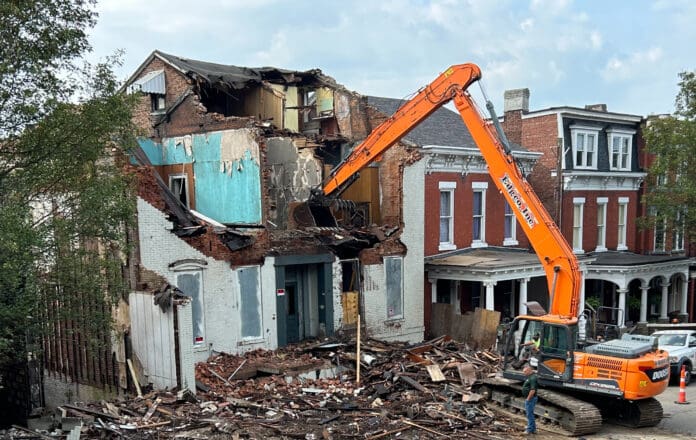
A headline in Saturday’s Sunday newspaper (let it sink in) reads, “City Demolitions Nearing an End”, and I’m willing to bet most Wheeling residents wish the headline were accurate.
It’s not, though.
The headline only refers to City Council’s current list of dilapidated properties in the six wards of the city, and it was formulated more than a year ago and it’s been reviewed and revised several times since. Those red-flagged properties, though, are not the only eyesores in Wheeling, a city once home to more than 60,000 residents that is now where less than half that amount of people reside today.
So, in the vast majority of neighborhoods, there are many abandoned houses with unkept yards that will not be addressed until Council develops a new list of people and their properties that are harmful to those residential areas. It’s the same tragedy that remains present in communities across America’s Rust Belt region and it’s impeding all efforts everywhere in the Mountain State from real resurrections.
There are three kinds of vacant houses in Wheeling – those that are owned, empty, ugly, and costly to surrounding property values; those that are owned, empty, costly, dangerous, and forgotten by out-of-town owners; and those that have been demolished on the taxpayer’s dime and now have a property lien attached to the respective deed.
The only scenario in which the lien means a thing is if the property owner attempts to sell the land before the state or city takes legal possession of the deed. To sell the parcel, the lien must be satisfied, but that seldom takes place in shrinking towns like the Friendly City.
If a parcel is owned but empty, ugly, in violation of code, and a negative to a neighborhood’s property values, the City can place it on the “raze-or-repair” and efforts are made to communicate with the owner. In far too many situations, the owner will address only the issues that attracted the attention and vanish yet again.
If it is empty, a neighborhood negative, dangerous to the public, and forgotten by out-of-town owners, it goes on the demo list and is razed when taxpayer funds become available.
And we the taxpayer pay for it instead of the owner.
Truth be told, the City can’t force those landowners to do much if anything at all, unfortunately, because West Virginia lawmakers have not yet given municipalities, towns, and villages the legal muscle they need to place demolition-related liens on the owner’s credit report for collection. If such recourse existed, not so many neighborhoods would be held hostage by the grossness of greed and selfishness.
Listen, if someone inherited the house and land and wants nothing to do with it, they can forfeit it to the city and walk away, but legislative action is necessary to protect communities from the inaction of neglectful property owners so we can collectively preserve and increase property values not only in Wheeling but in every nook and cranny in the great state of West Virginia.

